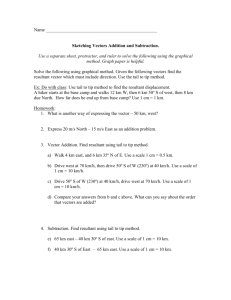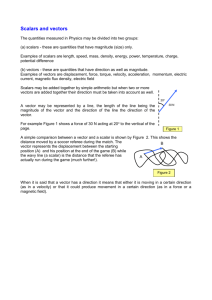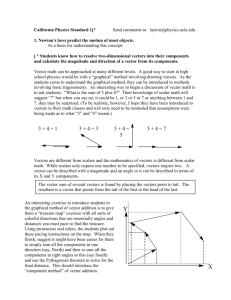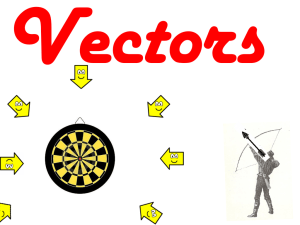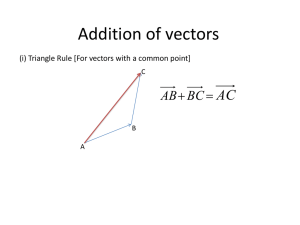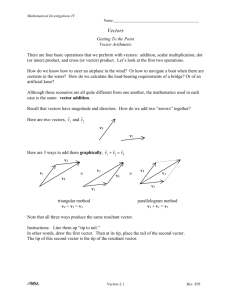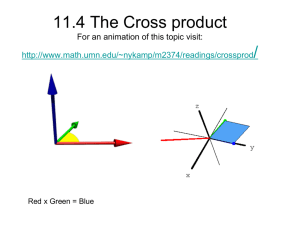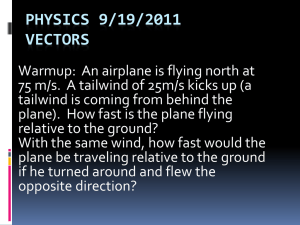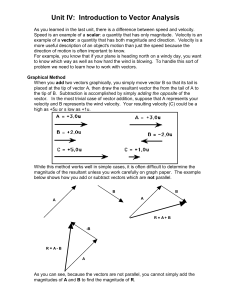IB Physics Vector Presentation
advertisement
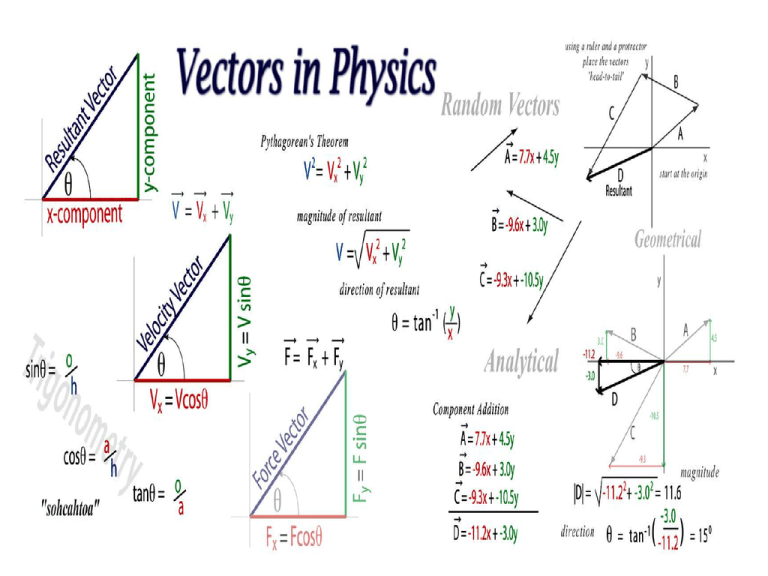
PHYSICS Vectors and Scalars Useful Vector Math SOHCAHTOA • Trigonometry – sine: sin q = opp/hyp – cosine: cos q = adj/hyp – tangent: tan q = opp/adj hypotenuse q adjacent side opposite side Useful Vector Math Pythagorean Theorum Vectors vs. Scalars – scalars: only magnitude (size) ex. distance, time, speed, mass, temperature – vectors: magnitude and a direction – Examples of vectors • displacement, s or x : distance and direction • velocity, v : speed and direction • acceleration, a: change in speed and direction Vector Basics • Vectors – displacement vectors d = d (displacement), q (direction) • length proportional to amount • direction measured by angle Co-linear Vectors • Combining Vectors – Collinear vectors: – v1 v2 v1 v2 • resultant: vnet= v1+ v2 • ex: A plane flies 40 m/s E into a 10 m/s W headwind. What is the net velocity? • ex: A plane flies 40 m/s W with a 10 m/s W tailwind. What is the net velocity? Non Co-linear Vectors • Perpendicular vectors: resultant’s magnitude: vx vy v q 2 2 vx vy resultant’s direction: v 1 vy q tan vx Graphical Method • Tail to tip method 1. 2. 3. 4. 5. +y Place first vector on graph with tail starting at the origin Place the second vector with the tail at the tip of the first vector Repeat step two for multiple vectors Draw a line from the tail of the first vector to the tip of the final vector. This final -x vector is called the resultant. The order that you add vectors doesn’t matter (commutative property) +x -y Component Method

